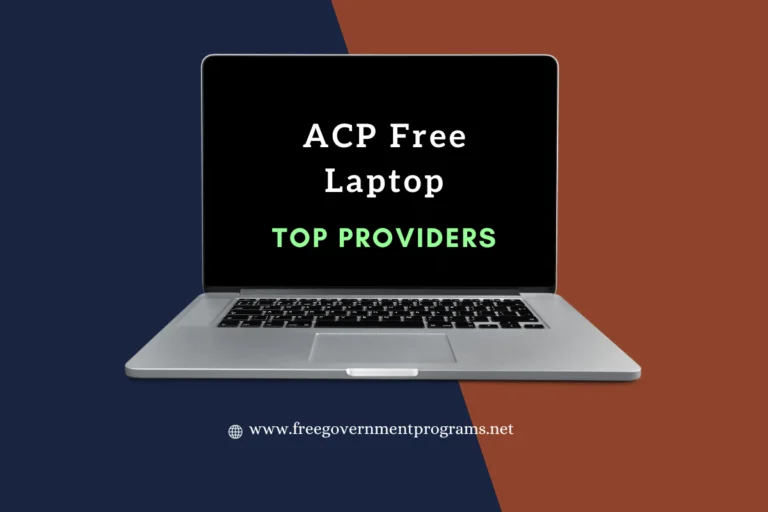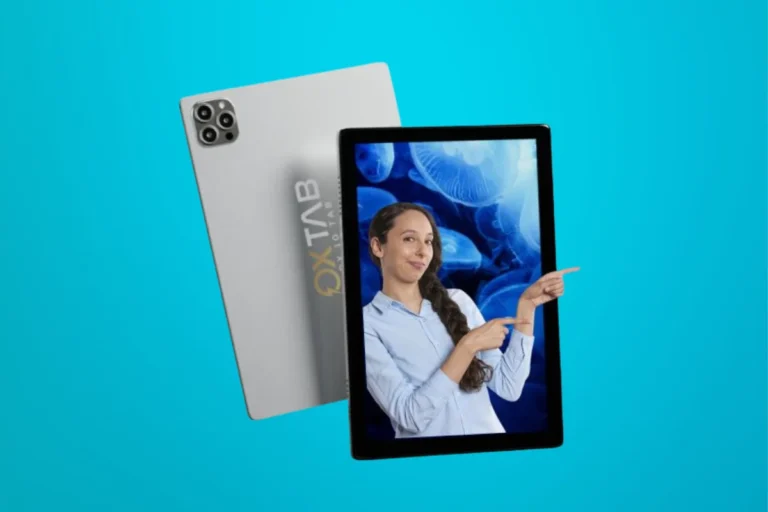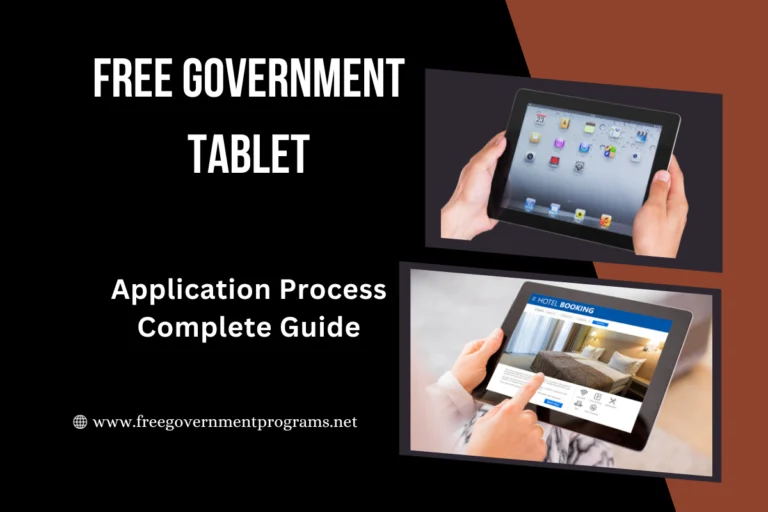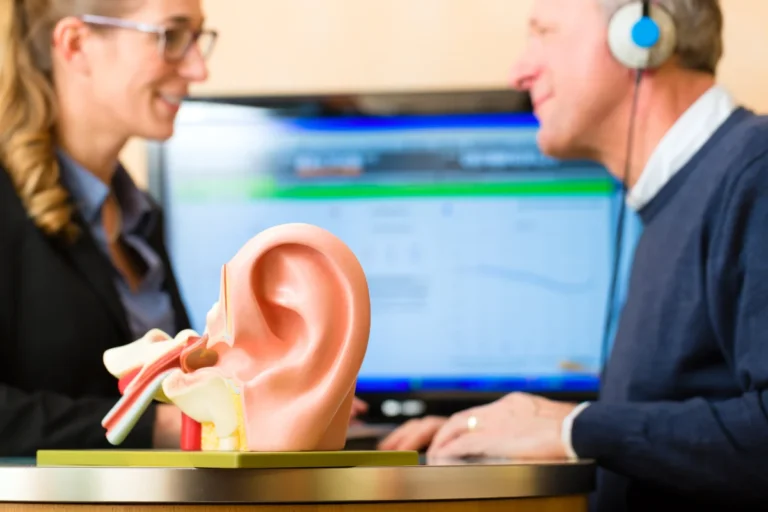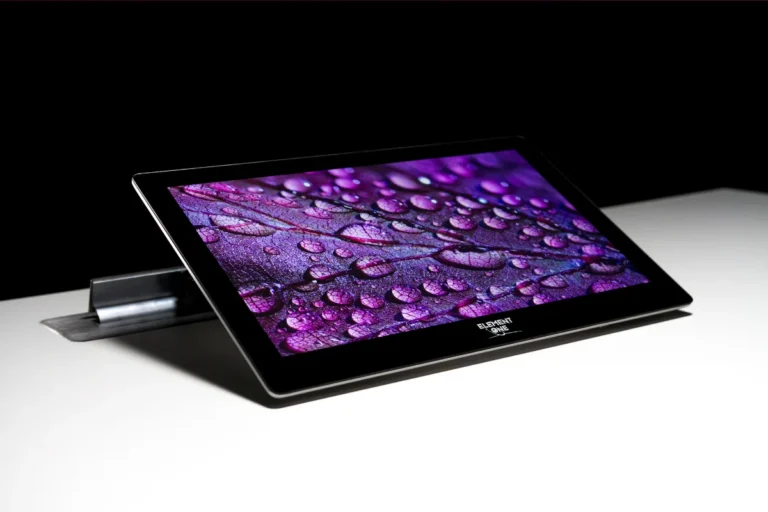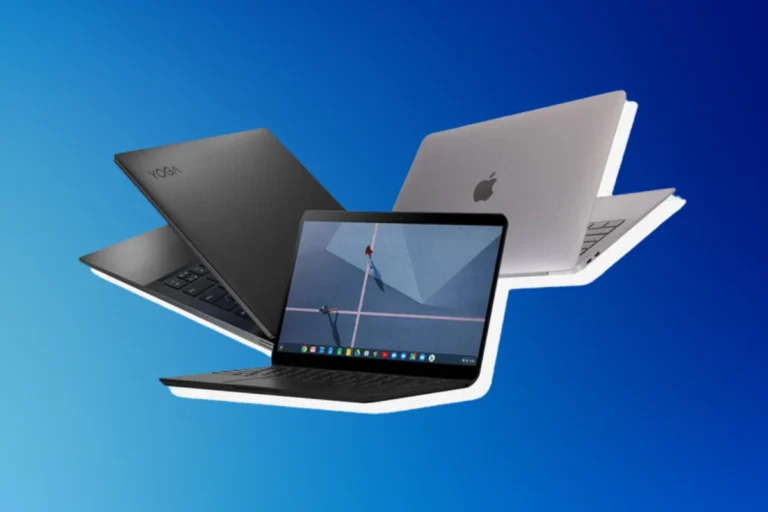Free Laptops For African Students – Ready to Transform Lives?
The period from 2005 to 2023, called Education for Sustainable Development by the United Nations, aimed to include the values of sustainable development in all types of learning. The goal is to encourage changes in behavior in people’s daily lives, especially in Africa and for underprivileged young students. The government aims to help create changes that would benefit developing countries by planning and adjusting their projects for sustainable education. Therefore, the government started to offer digital devices, including computers, to eligible students so that they could also participate in the progress of the country in every possible way. In this article, we will explore all possible ways to get Free Laptops For African Students, eligibility criteria, and the application process in detail.
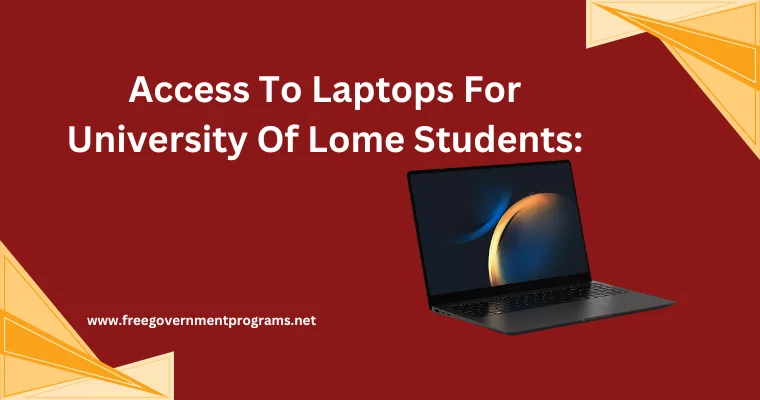
For this purpose, the government collaborates with many organizations to give free laptops to students all over Africa. For example, Lord’s Hands Computers for Africa has helped 27 countries. Another program called “One Student, One Laptop” by One Young World is also making a positive impact on many students’ lives. Because having a laptop can make a big difference for students in Africa; it can help them stay in school instead of dropping out.
Also Read here: Free Laptop For Senior Citizens
However, these organizations help in different ways. Some give laptops through donations, some fix up old computers, and others use information and communication technology (ICT) resources. But the main goal is to make sure every African student has what they need to succeed in today’s world.
Free Laptops for African Students
Here are some great chances for African students to get free laptops:
1. Lord’s Hands Computers for Africa
If you’re looking for a group that helps Africa by giving free laptops to students, check out Lord’s Hands. They believe in human and Christian values, and their mission is all about loving your neighbor. Their main aim is also to help students finish their education. Furthermore, they’ve given free laptops to African students, especially those from BYU-Pathway Worldwide.
Lord’s Hands has made a positive impact in 27 countries, helping more than 1013 students. Their vision is also to change Africa by giving one laptop and changing one life at a time.
2. One Young World, One Student, One Laptop
The “ONE STUDENT, ONE LAPTOP” initiative wants to give each student, especially those who really need a laptop for free or at a very low cost. It helps address the need for more technology skills caused by limited access to learning systems. However, the idea is to have a consistent and universal education system called LMD in all countries.
Also Read Here; American Assistance Free Phone
In many places, like Togo, getting a laptop is still seen as a luxury, especially for young students. Therefore, supporting the project and providing laptops is important for integrating technology into education and development in Togo and developing technology skills in young students. In addition, this organization impacts various sectors like education, health, the economy, and society as a whole.
Project Vision, Mission & Objectives:
- Vision
The goal is to give every student in Togo a laptop for their higher education studies. - Mission
The mission is to gather technology resources from generous donors and institutions to support and share technology with the young people in higher education in Togo.
- Objectives
Project Objectives:
- Assist students in need by acquiring second-hand computers from donors.
- Support the Togolese national curriculum in higher education.
- Foster active learning among students.
- Computer and ICT Skills Development:
- Encourage frequent computer use.
- Aim for proficiency in computer and ICT skills.
Access To Laptops For University Of Lome Students:
Ensure that students at the University of Lome have access to laptops.
Seek support from young people in developed countries for laptop donations to needy students in Togo.
Also Read Here; Free Government API
Overall Goals:
- Equip students with the necessary tools and training for effective ICT use.
- Raise technology standards among Togo’s students.
- Enhance competitiveness with global education systems.
- Encourage active learning methodologies.
- Improve the BMD system.
- Assist students in research and information retrieval.
Preparation For Future Success:
- Align the project with the needs of universities.
- Enhance students’ competitiveness in the global job market.
- Foster an understanding of and adaptation to the realities of the digital society.
GlobalGiving Computers For Pathway Students In Africa
The “Computers for Pathway Students in Africa” project is led by a group called The Lord’s Hands. They are also a humanitarian organization in the Democratic Republic of Congo. Moreover, this project is about helping students from BYU-Pathway Worldwide in Africa. These students need computers for their university-level courses.
Also Read Here; Free Government API
The GlobalGiving Computers for Pathway Students is also doing a competition to give free, fixed-up laptops to African students. This organization also helps students who might have to leave school because they need the right equipment or more money. However, the goal is to keep these students in school and help them improve their lives.
Additionally, the project has big plans. For example, in January, they want to give out 200 computers. They’ve already given out 15 in January 2021, 63 in April, and 101 in August. The main idea is to help students from 28 countries served by Pathway. They also want to support these students in reaching their educational goals, be part of the digital revolution, and make a positive impact in their communities for a long time.
Computers 4 Charity Computers for Africa
To help bridge the gap in access to technology in Africa, Computers 4 Charity gives away computers and laptops for free to students in African schools. They make sure to provide good-quality computers in the countries they work in so that people who don’t easily have technology can use modern computers. This organization also helps students learn better and improves their ability to work and progress in their studies.
Furthermore, Computers 4 Charity talks about the digital divide in Africa. In 2019, Africa had the lowest rate of people using the internet compared to other continents, with only 39.3% having access. Therefore, Computers4Charity works with schools and other charities in the UK to make sure they can effectively support people.
They’ve also come up with creative solutions, like creating classrooms out of shipping containers, and they’ve supported different projects, such as the Chibozu Community Trust and the Uganda Youth Soccer Academy.
ComputerAid (Apply for Computers)
If you want a free laptop, you and your school can apply for one on the ComputerAid website. Just fill out a form. The organization wants to know a lot about you to make sure they give laptops to the right people.
Compudopt (Our Mission)
Compudopt is a group that wants to help young people and communities that have a limited amount of resources. They do this by giving away free computers. However, their goal is to provide, connect, and inspire. They also take computers that people donate, fix them up, and then give them to families who need them. It is part of their Computer Giveaway program. But they don’t stop there.
Compudopt also helps families find ways to get internet that doesn’t cost much or is even free. They provide free lessons about technology for both young people and adults. It helps them learn new things and creates opportunities for a better future. So far, they have given away more than 78,790 computers, helped 82,947 students, and provided over 239,000 hours of technology training.
Labdoo.org
Labdoo is a worldwide network that helps people come together to bring education to everyone. They also focus on taking laptops that are not being used and giving them to schools that really need them.
In addition, if you have a laptop that you’re not using, you can give it to Labdoo. They make sure to fix it up and give it to students who need it the most.
Camara Education
Camara Education is a group that’s making a big difference in Africa by using technology to improve life opportunities. They aim to gather extra technology from businesses, make sure it’s safe for the environment and data, and then give it to schools in Africa.
In addition, their work doesn’t just help with education but also reduces electronic waste (e-waste) by recycling technology properly when it’s not used anymore. Camara has also set up many computers, given them to different schools, trained teachers, and helped millions of children.
Close The Gap
Close the Gap is a project that wants to give affordable or free laptops to African students for social projects. They also help in areas like education, health, and the environment. But it’s important to know that their support is only partially free.
However, if you want to work with Close the Gap, you usually need at least 20 computers. While they don’t give away computers for free, sometimes they have opportunities where partners can sponsor projects with grants.
OLPC (One Laptop Per Child)
If you’re looking for a group that helps with education and creative learning, consider OLPC. OLPC also gives free laptops to African students. Their main goal is to empower these students globally, helping them learn more and become more confident.
Computers With Causes
There’s a group called Computers with Causes that believes in learning from the past, living for today, and hoping for a better tomorrow. This organization also gives free laptops to African students. If you or a nonprofit really need a working computer, you can apply on their platform. Different groups are included in their outreach, including children, teachers, parents, veterans, foster homes, homes for older adults, and disabled veterans.
Other ways To Get Free Computers:
Check Your Local Library
A great place to look for a free or cheap laptop is at your local library. Libraries have a lot of useful information, and some in South Africa even partner with tech companies to give laptops to people who need them. But keep in mind there might be some requirements you need to meet, and these can be different from one library to another.
However, each library has its program for free laptops, so it’s a good idea to call ahead before going to the library. In this way, you can find out if they have any offers for free or affordable laptops.
Attend an Online College or University
Whether you’re about to start college for the first time or you graduated a while ago and want to continue your education, joining an online college or university might be a way to get a free or cheap laptop. Surprisingly, some online colleges give free laptops to their students. However, to find out more, make sure to do your research.
Additionally, look for schools that not only provide free laptops but also offer programs and classes that you’re interested in. But you would want to join a school for something other than just for the free laptop but for the education it offers.
Attend an Online Public School
Many online public schools provide free Chromebooks, laptops, and tablets to their students. It is especially true now that many schools are offering programs online, either full-time or part-time. Some school districts give tablets and computers to students who need them, but you need to be actively enrolled in the school to get one.
However, there are various options for enrolling in an online public school, and it’s a good idea to search based on the state and location where you live. You can also contact school districts to ask about the requirements.
Eligibility Criteria For Free Computer:
The eligibility criteria for obtaining a free computer may vary depending on the organization or initiative assisting. However, common criteria often include:
- Student Status: Many programs focus on students who are currently enrolled in educational institutions. It can also include primary schools, high schools, and universities.
- Financial Need: Many programs aim to help low-income students. Sometimes, they ask for documents that prove you need help financially.
- Academic Performance: Some programs may consider academic achievements as part of their eligibility criteria. Therefore, maintaining a certain grade point average (GPA) could enhance your chances.
- Community Involvement: In some cases, organizations may prioritize students who are actively involved in community service or extracurricular activities.
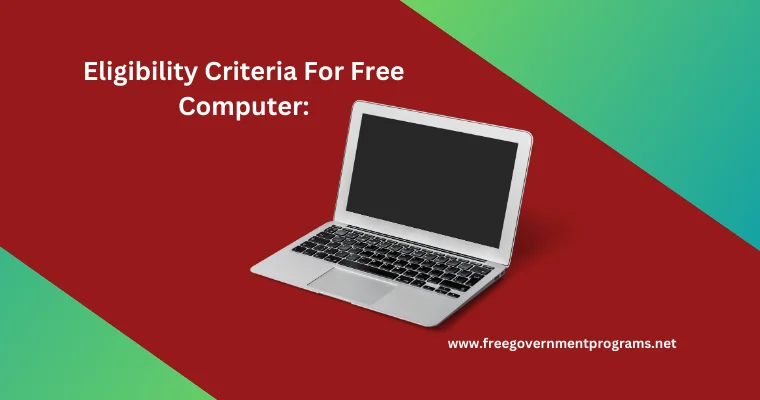
Required Documents:
Different programs might ask for different papers, but usually, they want some common documents.
Proof Of Enrollment:
- This can include: A school identification card,
- An admission letter
- A letter from your educational institution confirming your enrollment.
Financial Documentation:
- If the program considers financial need, you may need to submit documents such as: Income statements,
- Tax Returns Report, or
- A letter explaining your financial situation.
Academic Records:
Some programs may ask:
- An academic transcripts
- A report card to assess your academic performance.
Personal Identification:
- A copy of your passport,
- National ID or
- Any other government-issued identification may be required.
Recommendation Letters:
Some programs may ask for letters of recommendation from teachers or community leaders.
Application Process For Free Computer:
The application process for free computers typically involves the following steps:
- Research: Start by researching organizations or programs that provide free computers for African students. However, try to look for reputable and well-established programs.
- Check Eligibility: Review the eligibility criteria of the program to ensure you meet the requirements.
- Complete Application Form: Fill out the application form provided by the organization. You can download it from their website or through other specified channels.
- Provide Necessary Information: Be prepared to provide information about your educational background, financial status, and any other details required by the application.
- Write a Personal Statement: Some applications may ask for a personal statement explaining why you need a free computer and how it will benefit your education.
- Submit Supporting Documents: Attach any required supporting documents, such as proof of enrollment, proof of financial need, or academic transcripts.
- Follow Instructions: Carefully follow any additional instructions provided by the organization regarding the application process. Apply and wait for their response. Hope you will get a response within a few days
Advantages Of Free Computer:
Having access to technology is really important for education. Giving free computers to African students has lots of benefits. In a place where it can be hard to get a good education, free computers do more than just help in the classroom. They create a way for people to feel more empowered and to grow. Let’s discuss its advantages in detail:
Bridging The Digital Divide:
Free computers do something really important: they help close the gap in access to technology. Lots of students in Africa need easy access to technology, which means they miss out on online educational stuff. Therefore, free computers act like a bridge, letting students connect to a ton of information and online tools that are super important for learning in today’s world.
Enhancing Educational Opportunities:
Free computers open up lots of chances to learn new things. Students can go online to take courses, watch tutorials, and use digital libraries. This computer also lets them learn more than what’s in regular textbooks. Students are better able to understand different subjects when they have access to a variety of educational resources.
Facilitating Remote Learning:
Especially in light of recent global challenges, the ability to engage in remote learning has become crucial. Free computers enable students to participate in online classes, virtual lectures, and collaborative projects, regardless of their geographical location. This flexibility also ensures that education remains accessible even during challenging circumstances.
Fostering Digital Literacy:
Giving free computers helps students learn how to use technology well. Since technology is a big part of everyday life and jobs, getting used to digital tools early on helps students be ready for future job opportunities. Because digital literacy isn’t just about knowing how to use computers; it’s also about using online resources smartly and responsibly.
Breaking Socioeconomic Barriers:
Socioeconomic status should not determine a student’s access to educational resources. Free computers also help level the playing field by breaking down socioeconomic barriers. Students from low-income families can benefit from the same technological tools as their wealthier counterparts, ensuring that every learner has an equal opportunity to succeed.
Encouraging Innovation and Creativity:
Access to free computers empowers students to explore their creativity and innovation. They can engage in coding, programming, and various digital projects that enhance critical thinking and problem-solving skills. Moreover, the ability to experiment with technology fosters a spirit of innovation, which is vital in a rapidly evolving global landscape.
Strengthening Career Prospects:
Contributing free computers to students helps them get ready for the kinds of jobs available today. In the modern job market, knowing how to use a computer is really important. As technology becomes a big part of different industries, having computer skills is a basic need. Students who can use computers have a better chance of having careers in areas like science, technology, engineering, and mathematics (STEM).
Challenges Related To Free Government Computers:
While these initiatives are commendable, challenges such as limited resources and the need for sustainable funding models exist. Governments need to continually invest in these programs to ensure their longevity and effectiveness. Looking ahead, the future of education in Africa holds promise as governments, non-profit organizations, and private entities collaborate to provide more students with the essential tools for success.
Free government computers are not just about addressing immediate needs; they are investments in the potential of a generation.
Conclusion
Giving free computers to African students is more than just about technology. It’s like opening a door to empowerment and a better future. By removing obstacles, helping with digital skills, and broadening educational opportunities, free computers play a big role in the overall growth of students. As efforts keep focusing on providing access to technology, education in Africa is getting ready for positive changes, making a generation of empowered and digitally skilled individuals who can tackle the challenges of the 21st century.
So, if you want a free or cheap laptop for yourself or your family, the tips mentioned above are good places to begin your search. Some organizations might announce when they’re giving away free laptops, so it’s a good idea to watch out for these opportunities. If you want more information or to check out a variety of good-quality, reasonably priced laptops, you can visit PC International. Moreover, groups like Lord’s Hands Computers for Africa, One Young World, and Computers with Causes are doing their best to give free laptops to African students. Each donated laptop brings African students a step closer to a better and brighter future.
Frequently Asked Questions (FAQs)
Is there an age limit for students applying for free computers?
Eligibility criteria may vary, but programs often target students of various age groups, including those in primary, secondary, and high education.
Are there specific documents required for the application?
Yes, commonly required documents include proof of enrollment, identification documents, and, in some cases, evidence of financial need. However, check the application guidelines for the specific documents needed.
Who is eligible to receive a free computer from the government in Africa?
Eligibility criteria may vary, but generally, students from low-income families who are enrolled in educational institutions and meet specific requirements are considered.
Is there any cost associated with receiving a free computer?
Usually, no. Government programs and other organizations give out free computers because they want to remove financial issues for students. But it’s important to read the rules of each program to understand how it works.
